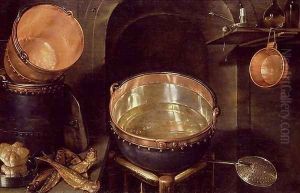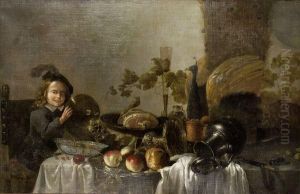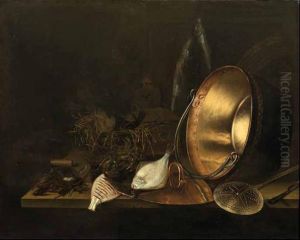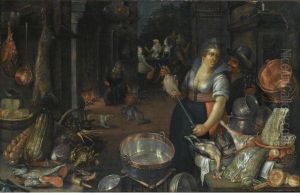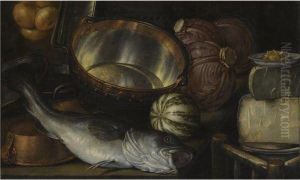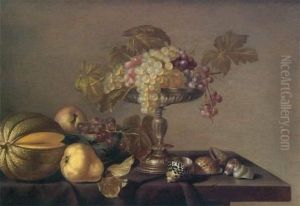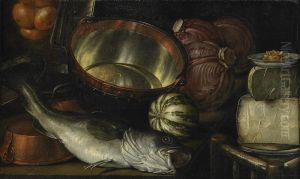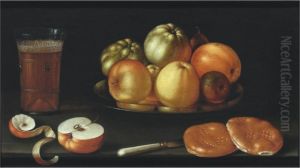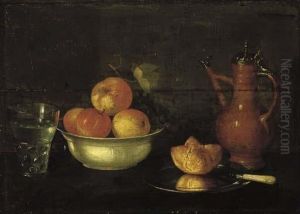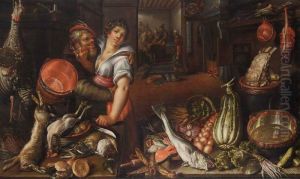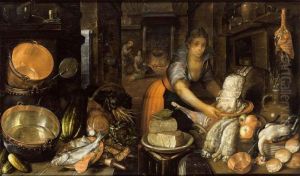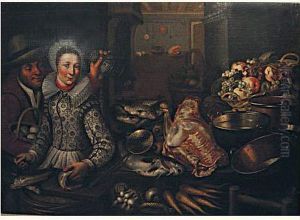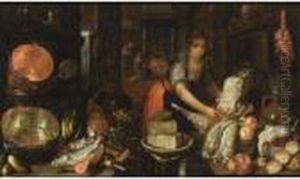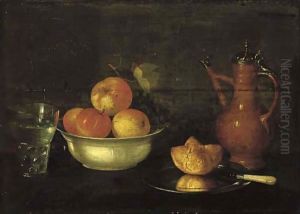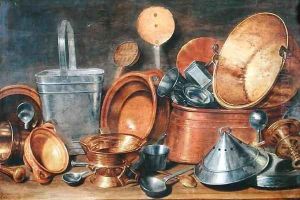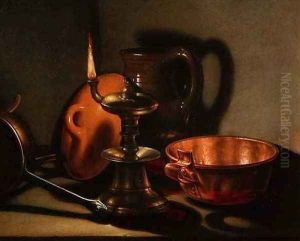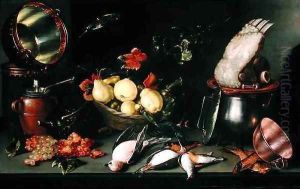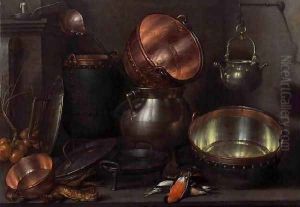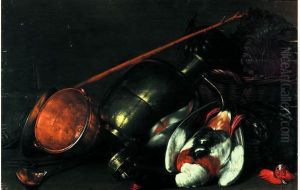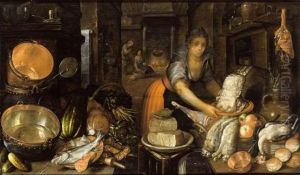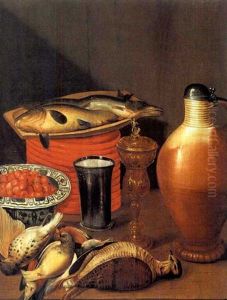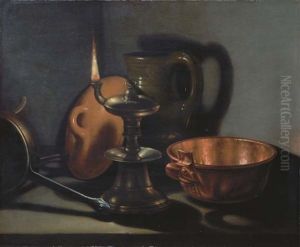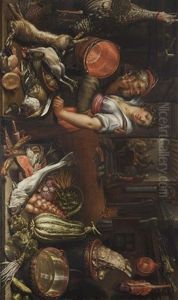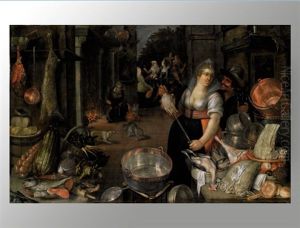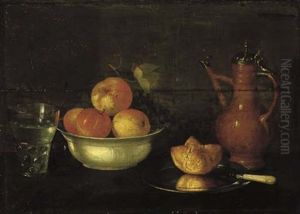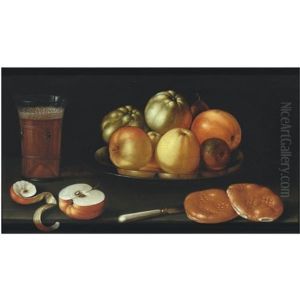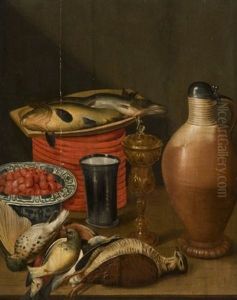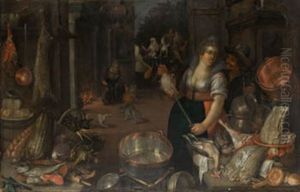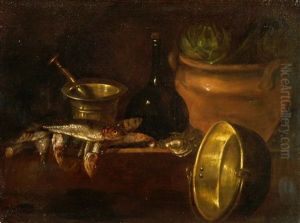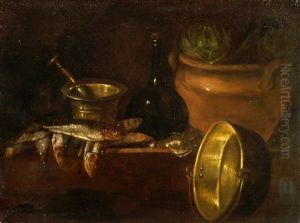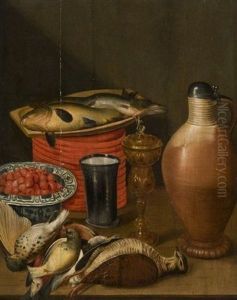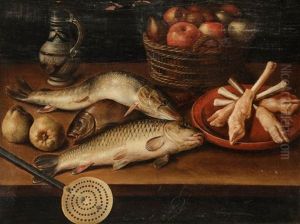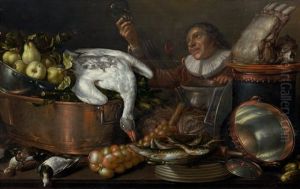Cornelis Jacobsz Delff Paintings
Cornelis Jacobsz Delff was a Dutch Golden Age painter who was born in 1570 in Gouda, Netherlands, and died in 1643. He is primarily known for his still-life works which include kitchen and banquet scenes that incorporate various food items, kitchenware, and sometimes figures. Despite not being as renowned as some of his contemporaries, Delff played a significant role in the development of still-life painting in the Netherlands.
Delff came from a family of artists; his father was the painter Jacob Willemsz Delff, and his brothers, Rochus and Willem, were also painters. He likely received his artistic training from his father and continued the family tradition by focusing on still-life and portrait painting. His style was influenced by the Flemish tradition, which was characterized by a high degree of realism and attention to detail.
Throughout his career, Cornelis Jacobsz Delff became known for his ability to portray textures and surfaces with great skill. His compositions often depicted a variety of objects, such as pewter plates, glassware, and food items, arranged on tables, which he rendered with care to reflect their material qualities and create a sense of depth.
In addition to still-life paintings, Delff was also a portraitist, although his portraits are less well-known today. He was active in Delft, where he had his workshop and took on commissions from local patrons. His works were collected by Dutch middle-class households, which contributed to the popularity of still-life genre paintings during the 17th century.
Cornelis Jacobsz Delff's contribution to Dutch painting has been recognized in art historical scholarship, although many of his works have been overshadowed by those of his more famous contemporaries. His paintings are held in various museum collections, and they continue to be studied for their representation of Dutch domestic life and the evolution of still-life painting.
